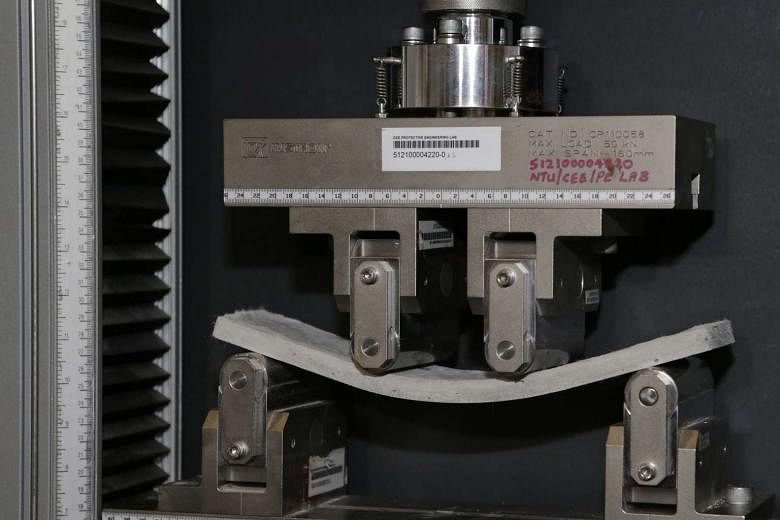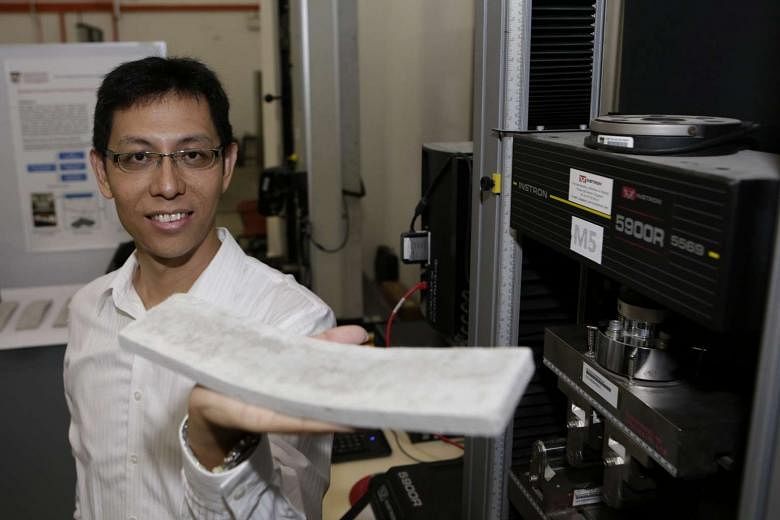Nanyang Technological University (NTU) scientists have invented a flexible concrete that bends rather than breaks under pressure, making it tougher than regular concrete.
In collaboration with JTC - the government agency in charge of industrial space - this new material named ConFlexPave will be tested as road paving over the next three years, NTU and JTC announced yesterday. Conventional concrete is already used as road paving in some areas in Singapore, such as traffic junctions, as it is more durable than asphalt.
"Under traffic conditions, you have constant 'loading' and 'unloading' as the vehicles pass over the concrete," explained Assistant Professor Yang En-Hua. "Durability is very important."
Prof Yang is leading the research project at the NTU-JTC Industrial Infrastructure Innovation Centre.
ConFlexPave is at least twice as tough as regular concrete, meaning that the slabs used can be half the thickness, making them lighter and easier to transport and install.
The durability also means the material is expected to last up to twice the 20-year lifespan of conventional concrete road paving.
"Because we use special materials, the upfront material cost is slightly on the high side," Prof Yang added. "But if you look at it over the entire life cycle and take into account the manpower reduction as it is easier to install, you can actually save more."
Besides cement, water and sand, which are also components of regular concrete, ConFlexPave contains two special materials.
Although they cannot be named as they are trade secrets, they are special synthetic fibres which allow the concrete to flex rather than break, and a hard mineral replacing the gravel in typical concrete.
The next challenge is to produce this concrete on a larger scale rather than in the laboratory, according to Prof Yang. The slabs will be tested at a JTC site within the next year, and monitored for at least two years.
Based on that, JTC will work with the Land Transport Authority to see if the use of ConFlexPave can be scaled up. Mr Koh Chwee, director of JTC's technical services division and co-director of the centre, said: "There'll be a lot of other potential uses beyond (roads)."
Prof Yang believes its flexibility could make it a good building material in earthquake-prone regions.



